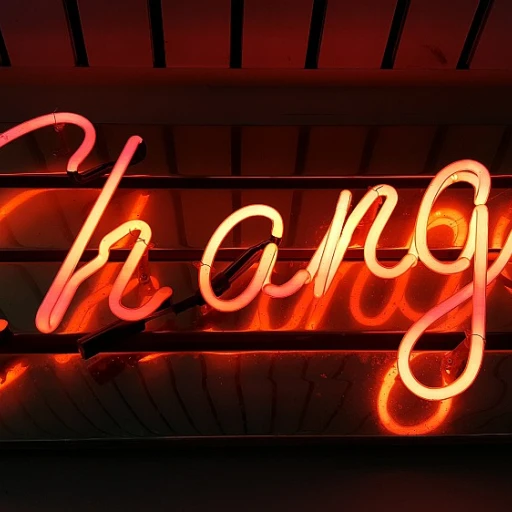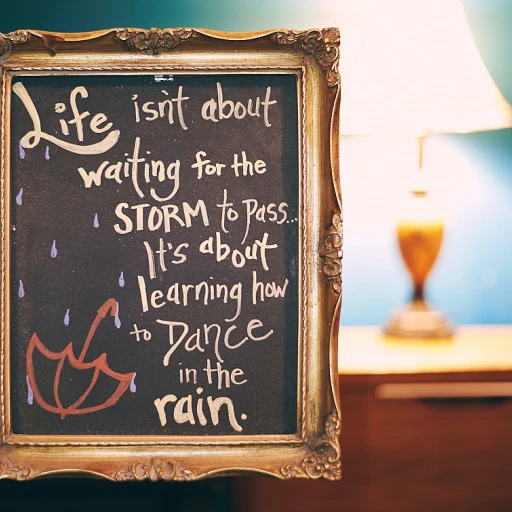
Understanding the Importance of Candidate Experience
The Significance of an Optimized Candidate Experience
Creating a strong candidate experience is paramount in today's competitive job market. It plays an essential role not only in attracting top talent but also in ensuring that candidates leave with a positive impression of the company, regardless of the hiring outcome. A well-crafted candidate experience can transform potential employees into enthusiastic advocates of your brand. The job interview process often acts as the gateway through which candidates experience a company. When candidates engage in interviews that genuinely reflect your company culture, they gain clearer insights into what it's like to be part of the team. This approach helps them determine if the cultural fit aligns with their personal values and career aspirations. Additionally, interviews that focus on meaningful questions and interactions can help uncover the full spectrum of a candidate’s soft skills, which are increasingly being recognized as vital for success in any role. In particular, questions that allow candidates to describe a time when they implemented problem-solving skills or adapted to a challenging work environment can offer deeper insights into their potential contributions to the team. Throughout the interview, it's crucial to encourage open dialogues, allowing candidates to ask questions and provide comprehensive answers. By focusing on these facets, companies not only enhance their hiring process but also position themselves as preferred employers. I'm sure you're aware that the impact of interviewer mistakes on the candidate experience can be significant. For more insights on addressing these issues, this impactful resource could be beneficial. Ultimately, achieving an optimized candidate experience is about balance: integrating strategic interview questions with an understanding of the candidate's perspective, all while ensuring alignment with the company's hiring goals.Crafting Questions that Reflect Company Culture
Questions That Showcase Your Unique Company Environment
Creating interview questions that accurately represent your company culture is an essential step in attracting the right candidates and ensuring their long-term success in the role. When candidates understand the work environment and ethos they might be stepping into, they can make better-informed decisions about whether your company is the right fit. Aligning interview questions with company values not only speaks volumes about your organizational integrity but also serves as an initial window into what daily life might entail when joining your team. Here are some approaches to consider:- Focus on Core Values: Draw questions from the core principles that drive your company. If teamwork is a priority, you might ask, "Can you describe a time you worked closely with team members to achieve a challenging goal?" This question evaluates not just experience but also alignment with your team's collaborative spirit.
- Highlight Unique Cultural Aspects: Think about what sets your company apart from others in the industry. Perhaps you emphasize innovation or customer satisfaction. Frame your questions to correspond with these niches. For instance, "Describe a time when you used your problem-solving skills to improve a product or service," helps gauge both role-specific skills and potential cultural fit.
- Prioritize Soft Skills: While technical competencies are crucial, soft skills like communication, adaptability, and empathy are equally important. Questions that address these areas, such as "How do you approach changes within your team or job responsibilities?" can be pivotal.
Behavioral Questions to Gauge Candidate Fit
Behavioral Insights to Predict Candidate Success
Crafting interview questions that gauge a candidate's fit within your team and company is crucial in the hiring process. Behavioral interview questions particularly aim to delve into past experiences to predict how a candidate will approach future role-related challenges. Behavioral questions focus on examining a candidate's soft skills along with their professional competencies. These questions help identify how candidates describe time spent handling specific work situations. To illustrate, you might ask, "Describe a time you faced a problem at work and how you resolved it." This question assesses problem-solving skills and gives valuable insight into the candidate’s methods. The goal is to simulate a situational interview environment where candidates will demonstrate their ability to respond to real-life scenarios effectively. Here's a small collection of behavioral questions to draw from:- "Tell me about a situation where you had to work closely with a team to achieve a goal. What was your role, and what was the outcome?"
- "Can you give an example of a time when you showed initiative and took the lead on a project?"
- "Describe an experience where you had to manage conflict within your team. How did you handle it?"
Technical and Skill-Based Questions
Assessing Technical Proficiency and Skillsets
When it comes to evaluating candidates for a specific role, technical and skill-based questions are indispensable. These interview questions not only help you determine whether a candidate possesses the necessary skills but also how they apply these skills in real work situations. Crafting specific interview questions to gauge technical knowledge can be a critical step in the hiring process. For instance, if hiring for a role that requires strong problem-solving abilities, asking candidates to describe a time when they successfully solved a complex problem can provide insights into their methodology and thought process. This approach allows interviewers to assess technical proficiency more accurately. While technical skills are essential, pairing these questions with an assessment of soft skills is equally important. By focusing on both areas, you can ensure a well-rounded evaluation of a candidate's potential fit within your team. Consider asking questions about how candidates will collaborate with team members or adapt to new technological challenges. This can reveal their ability to work as part of a team and their capacity to grow within the company culture. Remember, the goal is not just to identify who has the best answers. The purpose is to ensure that the questions interview help you understand the candidate's capacity to perform the job effectively while aligning with the company's overall objectives. By thoughtfully integrating technical and skill-based inquiries into your interview process, you can better select candidates who will thrive in their roles and contribute positively to the organizational environment.Open-Ended Questions to Encourage Dialogue
Encouraging Open Communication
Open-ended questions stand out as a pivotal part of any job interview process. They not only provide candidates the freedom to express themselves comprehensively but also offer invaluable insights into their thought processes, problem-solving skills, and authentic personalities. Asking candidates to describe a time when they overcame a challenge can reveal much about their resilience and resourcefulness. For instance, asking questions like "Can you describe a time when you had to handle a difficult situation at work?" not only prompts candidates to draw from their experiences but also helps the hiring team gauge their approach to problem-solving. Such interview questions encourage a dialogue rather than a straightforward question and answer session, allowing candidates to provide rich details that highlight their potential fit within the team and company culture. Moreover, these open-ended questions are instrumental in understanding a candidate's soft skills. These questions help in assessing how well candidates will collaborate with future team members, tackle problems, and align with the company's values. Questions like "What do you think is the best approach to team problem-solving?" invite candidates to discuss their strategies and adaptability in various work environments. The aim is to foster an environment of trust and openness where candidates feel welcomed to share their insights and motivations. This practice not only enhances the candidate experience but also aids in selecting the right fit for the role, ensuring that candidates will not only perform well but also thrive within the company's ecosystem. The dialogue that ensues from open-ended questions can reveal aspirations and professional paths, aiding both the interviewer and the interviewee in making informed decisions.Feedback and Follow-Up: Closing the Loop
Closing the Interview Process Loop
Once the interview process is complete, the journey doesn't end there. Providing feedback and maintaining communication with candidates is crucial in ensuring a positive candidate experience. This approach not only reflects the company culture but also demonstrates professionalism and respect for the candidates' time and effort.
Feedback is a powerful tool. Whether the candidate is moving forward in the hiring process or not, offering constructive feedback can help them understand their strengths and areas for improvement. This is particularly important after a behavioral interview, where candidates have shared their problem-solving skills and examples of their work experience. Sharing insights into their performance can enhance their future job interview experiences.
Best Practices for Feedback
- Timeliness: Provide feedback as soon as possible after the interview. This shows respect for the candidate's time and keeps them engaged with your company.
- Specificity: Be specific in your feedback. Highlight particular interview questions or answers that stood out, whether positively or negatively. This helps candidates understand your perspective.
- Positivity: Even if the feedback includes areas for improvement, frame it positively. Encourage candidates by acknowledging their efforts and potential.
- Clarity: Ensure your feedback is clear and concise. Avoid jargon and focus on the key points that will help the candidate improve.
Follow-up is equally important. After providing feedback, keep the lines of communication open. Let candidates know the next steps in the hiring process, even if it means informing them that they were not selected for the role. This transparency is a reflection of your company culture and can leave a lasting impression.
Ultimately, by closing the loop with thoughtful feedback and clear follow-up, companies can significantly enhance their candidate experience. This not only helps in building a positive reputation but also attracts top talent who value a professional and respectful hiring process.













